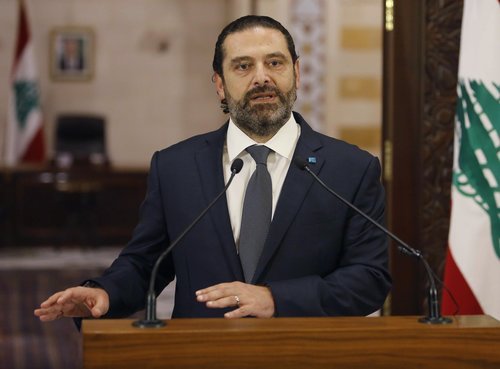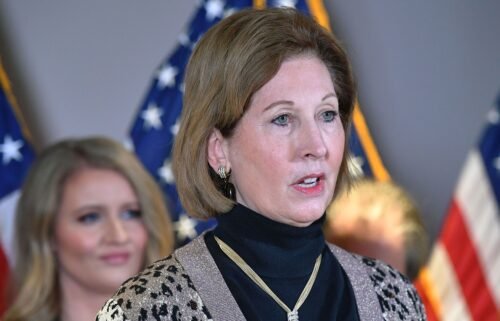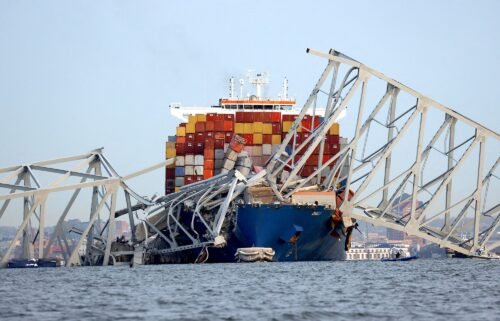Lebanon’s Hariri resigns after nearly two weeks of nationwide protests

Lebanon‘s Prime Minister Saad Hariri announced Tuesday he was resigning, succumbing to the demands of protesters who have staged nationwide demonstrations for nearly two weeks.
The three-time prime minister has led a national unity government, which included some of his political adversaries, for less than two years. In recent months, the country saw rapid economic deterioration, ballooning debt and rising prices.
On October 17, the government proposed imposing a tax on Whatsapp calls, along with other austerity measures, sparking protests that paralyzed the country.
Lebanon has been under lockdown since the protests began. Banks and schools have been closed for 12 days, while protesters blocked major routes throughout the tiny eastern Mediterranean nation.
“I can’t hide this from you. I have reached a dead-end,” Hariri said in his resignation speech.
“To all my political peers, our responsibility today is how to protect Lebanon and to uplift the economy,” he added. “Today, there is a serious opportunity and we should not waste it.”
Scores of protesters in downtown Beirut cheered as Hariri announced his departure. At their peak, hundreds of thousands of people took to the streets to protest government corruption on Sunday.
Over the last week, protests have dwindled in number, concentrating on road closures on main routes as the economic crisis has deepened.
Chaos in downtown Beirut
Hariri’s announcement came hours after chaos broke out in downtown Beirut when a mob stormed into the capital’s main protest site, setting parts of it alight and tearing up tents on Tuesday afternoon.
Shouting “Shia, Shia” and singing chants in support of Hezbollah and Amal — another Lebanese political party — hundreds of men wielding sticks poured into the site, breaking up protest road closures and attacking demonstrators. Police fired dozens of rounds of tear gas to disperse the crowds.
The military was deployed to the streets of downtown Beirut, and many anti-government protesters have cleared the site. Earlier, female protesters tried to form a human chain trying to separate the demonstrators from the mobs.
Hezbollah’s media office could not be reached for comment.
Calls had grown in recent days for Hariri and his government to resign. The Prime Minister’s cabinet included adversaries such as Hezbollah, the Iranian-backed Lebanese militant and political organization.
Hezbollah chief Hassan Nasrallah last week said the protests were part of an international conspiracy aimed at toppling the group.
Political vacuum and economic crisis
Lebanon is no stranger to political vacuums, having been embroiled in multiple crises over the years that pitted Saudi-backed Hariri against Iran-backed Hezbollah. Hariri’s national unity government, first formed in 2016, brought some years of stability as the two foes set aside their differences. But it also presided over a floundering economy.
Decades of government mismanagement and widespread corruption have crippled Lebanon’s finances, adding pressure to the currency and causing the debt to swell. The country has one of the world’s highest debt-to-GDP ratios and around a third of the its population lives under the poverty line, according to the World Bank.
Hariri’s resignation could deepen the latest unrest and exacerbate the economic crisis. But protesters say it also presents an opportunity to shake off the country’s sectarian system and transition into civil governance.
“There’s a lot of unknowns. We’ve moved from a phase of celebration where people were coming together and showing solidarity in one where we don’t know whats going to happen,” said Karim Makdisi, associate professor of international politics at the American University of Beirut. “There’s an official split in the street right now.”
Hezbollah has opposed the government’s resignation, with Nasrallah warning that it could lead the country “into the abyss.”
Three-time prime minister
Hariri has been a major figure in the country’s deeply divided political landscape since his father, former Prime Minister Rafik Hariri, was assassinated in February 2005. He emerged as a leader of the country’s Sunni sect, and became mired in political battles with Hezbollah and its allies. The period was riddled with sporadic violence and stalemates.
In 2011, Hezbollah’s coalition, which consisted of Christian and Shia allies, toppled Hariri’s government while he was on a visit to Washington, DC. In 2016, a rapprochement between the two sides led to the formation of the national unity government under Hariri’s leadership.
In November 2017, Hariri announced his resignation while in the Saudi capital Riyadh, blindsiding both his supporters and his adversaries. Several figures, including Hezbollah ally President Michel Aoun, accused Saudi Arabia of detaining the prime minister and forcing him to resign. Weeks later, Hariri withdrew his resignation upon his return to Lebanon.
Even if Hariri’s resignation marks a possible return to old rifts, it also represents a step forward for Lebanon’s protesters.
“The government’s resignation is going to be taken by the protesters as a big victory. i don’t think that should be underestimated,” said Makdisi. “There is a victory on the one hand, and a possible security issue on the other.”


